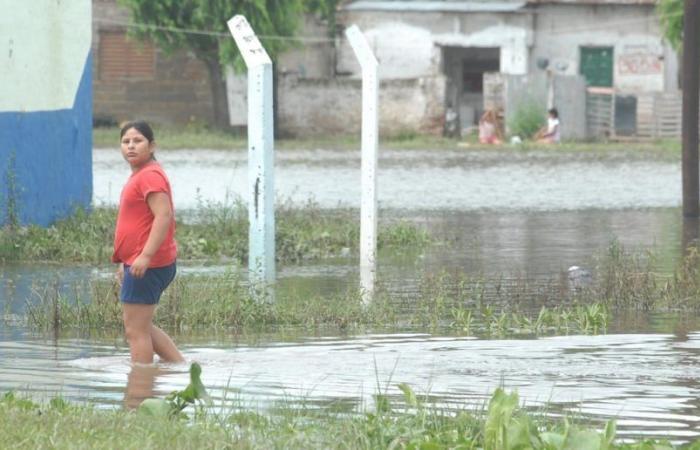Thursday 27.6.2024
/
Last update 14:39
The Lincoln Institute of Land Policy, and within it the Consortium for Scenario Planning, launched an application in which cities from any part of the world could apply for the purposes of learning about planning and preparing scenarios for the possibility of disasters faced by populations worldwide.
Espacio Encuentro nominated Santa Fe, being one of the five selected worldwide. To date, the work has focused on the design of participatory workshops where the inhabitants of these three selected neighborhoods themselves will be able to reflect and think about themselves in terms of organization and resilience in the face of disasters related to climate change, whether new or those already known and experienced (floods due to rainwater or flooding of rivers, fires and strong heat waves).
Resilient Santa Fe
Giovanni Pérez Macías, Julia Sarniotti, Carolina Passet and Nahuel López, along with the rest of the team, carry out the Santa Fe proposal and will be in charge of the workshops that will be held during the coming months with neighbors. The experiences are aimed at inviting residents to think about risk scenarios in their own contexts and to reflect on the strategies that exist today to deal with them. Each selected neighborhood has its own idiosyncrasy, history, forms of relationship; However, in all of them, communities have the same need to overcome the inconveniences that the effects of climate change can generate.
The selected cities and projects
The Lincoln Institute also selected the Rural Municipality of Piney in Manitoba, Canada, which will develop workshops and educational resources to help the region better prepare for a range of disasters, particularly wildfires. Separately, a team from the Virginia Institute of Marine Science (VIMS) at the College of William and Mary in Williamsburg, Virginia, will develop a framework for rural communities to plan for and adapt to flooding from sea level rise and increasing impacts of storm flooding, using rural areas of Virginia.
A team from the Urban Mapping Agency, BuroDAP, and the Universidad del Rosario in Bogotá, Colombia, will conduct workshops with a special focus on vulnerable communities and informal settlements facing risk of flooding in the urban peripheries of two major cities: Policarpa in Cartagena and the alluvial plain of the Tunjuelo River in Bogotá. Finally, the Greater South End Charlton-Pollard Historic Community Association will design and conduct a series of exploratory scenario planning workshops in Beaumont, Texas that will gather ideas and input to formulate and prioritize flood resilience strategies. The town suffers and due to the location and the surrounding factories, it leaves its population isolated every time it happens.
What is the Lincoln Institute? His relationship with Encuentro
The Lincoln Land Policy Institute traces its origins to John C. Lincoln, a Cleveland industrialist and investor who in 1946 established the Lincoln Foundation in Phoenix, Arizona.
From the late 1940s to the early 1970s, the Lincoln Foundation sponsored a variety of university education and research programs in applied theoretical economics and taxation. Over the years the globally renowned Institute has focused on real estate valuation and tax policy, urban planning and development, land economics and property rights. In 2006, the Lincoln Foundation and the Lincoln Institute of Land Policy merged to become a private operating foundation that, to this day, continues to focus on research, publications and training, while pursuing a more active role in the conversations that shape public policy decisions. In 2017, the same Institute created the Scenario Planning Consortium, which functions as a community of practice that, through research, peer learning, networking, training and technical assistance, helps communities to develop better plans to guide a range of actions, from climate change adaptation to transportation investment.
Espacio Encuentro has already had experiences of exchange and growth with said institute, both through some of its members and from the Course on Land Policies and Climate Action in Latin American Cities, carried out in 2022, in which Santa Fe also was chosen as a case study.
In uncertain and increasingly dynamic contexts, thinking about planning not only from what is already known but also from exploration not only represents a challenge but also a necessary strategy.






